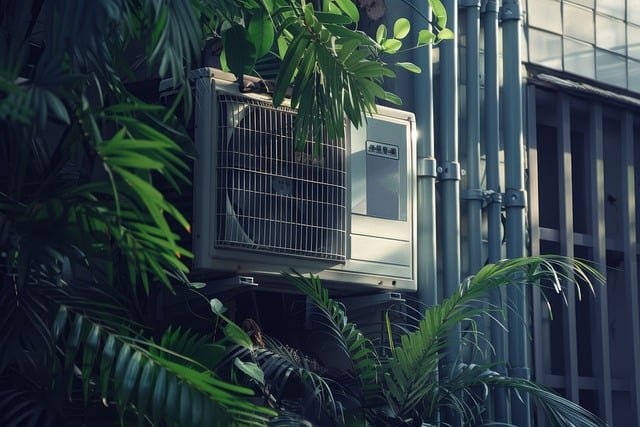Homeowners in Denver are recognizing the importance of upgrading to energy-efficient HVAC systems to manage both comfort and energy costs effectively, given the city's variable climate. HVAC professionals play a crucial role in evaluating and enhancing home energy efficiency, identifying areas for improvement that can lead to significant savings and better performance. Investing in or updating to high-efficiency HVAC systems, especially those with Energy Star certifications, aligns with Denver's sustainability goals and offers long-term financial benefits alongside improved environmental outcomes. Smart thermostats and regular maintenance are essential for optimizing these systems' efficiency. Embracing energy-efficient practices is a financially prudent and environmentally responsible decision in line with local regulations and community expectations in Denver. The article section underscores the necessity of adapting HVAC systems to Denver's distinctive climate, characterized by its high altitude and significant temperature fluctuations. Regular maintenance, advanced technology integration, and professional inspections are vital for ensuring these systems function efficiently year-round, leading to reduced energy consumption and costs. In Denver, proper insulation, especially around ductwork, and upgrading to smart or programmable thermostats are recommended to enhance system performance and energy savings. Adhering to Denver HVAC standards, including selecting ENERGY STAR certified systems and ensuring windows are energy-efficient, contributes to a more comfortable living environment while reducing the carbon footprint. By following these guidelines, homeowners in Denver can maintain their HVAC systems' efficiency and effectiveness throughout the year.
In the context of sustainable living and cost-effective energy usage, Denver homeowners are increasingly turning their attention to the pivotal role that energy efficiency plays in their homes. This article delves into the critical practice of conducting inspections to enhance the energy efficiency of residential properties within Denver’s diverse climate. It outlines the importance of HVAC systems in this endeavor, offering insights into the standards and expectations Denver HVAC professionals set forth. By navigating through the nuances of energy consumption and identifying common issues that can hinder efficiency, homeowners can implement targeted improvements. Armed with actionable tips and best practices aligned with Denver’s HVAC benchmarks, residents are equipped to maximize their homes’ energy efficiency, leading to a more comfortable living environment and significant savings on utility bills.
- Understanding Energy Efficiency and Its Importance for Denver Homeowners
- The Role of Denver HVAC Systems in Achieving Optimal Energy Efficiency
- Preparing for an HVAC Inspection: What to Expect from a Denver HVAC Professional
- Common Issues Found During Denver HVAC Energy Efficiency Inspections
- Maximizing Your Home's Energy Efficiency: Tips and Best Practices Based on Denver HVAC Standards
Understanding Energy Efficiency and Its Importance for Denver Homeowners

In the context of Denver, a city with a diverse climate ranging from cold winters to warm summers, understanding energy efficiency is paramount for homeowners. Efficient HVAC systems are crucial for maintaining comfortable living conditions while minimizing energy consumption. Denver HVAC professionals play a vital role in assessing and improving the energy efficiency of homes. By conducting thorough inspections, these experts can identify areas where a home’s heating and cooling processes may be wasting energy, leading to higher utility bills and less optimal environmental performance. Homeowners who prioritize energy-efficient HVAC solutions not only contribute to reducing their carbon footprint but also benefit from long-term savings and enhanced comfort.
The importance of energy efficiency in Denver cannot be overstated, especially considering the city’s commitment to sustainability. Homeowners looking to invest in or upgrade their HVAC systems can significantly reduce their energy consumption with modern, high-efficiency units. These advancements often come with Energy Star certifications, ensuring that homeowners are making an environmentally friendly choice. By understanding and implementing energy-efficient practices, Denver residents can ensure their homes remain warm during the winter and cool in the summer while adhering to eco-friendly standards set by local regulations and community expectations. The integration of smart thermostats and routine maintenance further enhances the efficiency of these systems, making Denver HVAC a critical consideration for homeowners aiming to optimize their homes’ energy use.
The Role of Denver HVAC Systems in Achieving Optimal Energy Efficiency
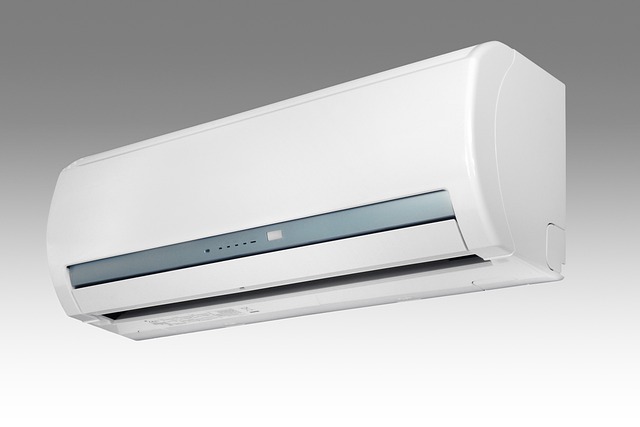
Denver’s climate necessitates robust heating, ventilation, and air conditioning (HVAC) systems to maintain energy efficiency throughout the year. The unique challenges presented by the region’s altitude and varying weather patterns make it imperative for HVAC systems in Denver to be optimized for performance and energy conservation. Proper installation, regular maintenance, and advanced technology are crucial in ensuring these systems operate at peak efficiency, thereby reducing energy consumption and costs for residents and businesses alike.
Routine inspections and updates to Denver HVAC systems play a pivotal role in achieving optimal energy efficiency. These checks not only extend the lifespan of the equipment but also identify areas where improvements can be made. For instance, retrofitting older systems with smart thermostats can significantly enhance energy management, leading to substantial savings. Additionally, leveraging the expertise of local HVAC professionals who understand the specific demands of the Denver environment ensures that each system is fine-tuned for maximum efficiency and reliability, which is essential in a region where heating needs can spike during cold winters and cooling demands rise during hot summers.
Preparing for an HVAC Inspection: What to Expect from a Denver HVAC Professional
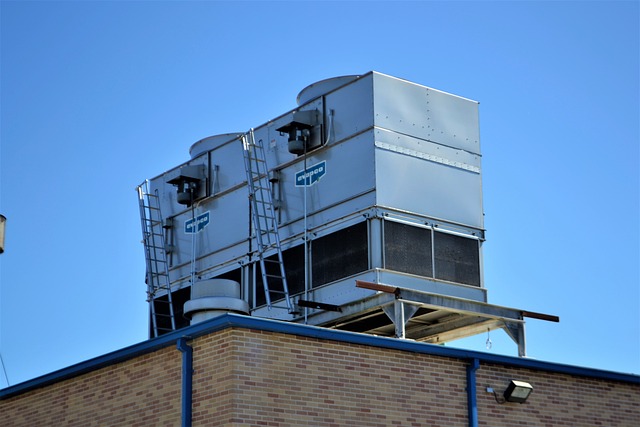
When preparing for an HVAC inspection in Denver, it’s crucial to understand the specific expectations and procedures that a local HVAC professional will follow. These inspections are pivotal for assessing the energy efficiency and overall health of your heating and cooling systems. A Denver HVAC expert will conduct a comprehensive evaluation that includes examining your system’s components, such as thermostats, filters, ductwork, and the HVAC unit itself. They will check for proper airflow, refrigerant levels, and ensure that all parts are functioning optimally to maintain efficient operation. Expect the professional to assess the age of your system, as older models may not meet current energy efficiency standards. They may also recommend upgrades or repairs to enhance performance and reduce your energy consumption. Additionally, the inspection will cover the detection of potential issues like leaks, wear and tear, or signs of damage that could compromise the effectiveness of your HVAC system. Engaging a Denver HVAC professional for this inspection is not just about adhering to maintenance schedules; it’s about proactively maintaining a comfortable living environment while keeping your energy bills in check. It’s wise to schedule such inspections regularly, typically before the changing of seasons, to ensure your system operates at peak efficiency throughout the year.
Common Issues Found During Denver HVAC Energy Efficiency Inspections
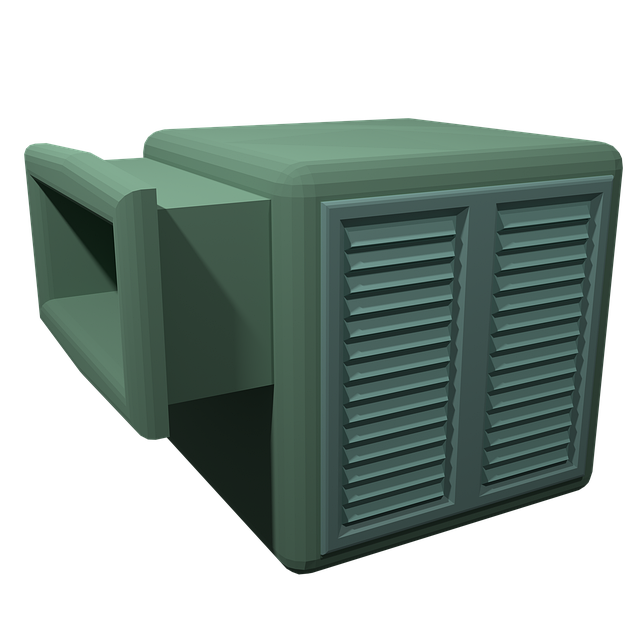
During Denver HVAC energy efficiency inspections, several common issues regularly surface that can significantly impact a system’s performance and energy consumption. One prevalent concern is inadequate insulation, particularly around ductwork, which can lead to substantial energy loss. In the high-altitude climate of Denver, where temperatures can fluctuate dramatically, this issue can be particularly detrimental. Homeowners should ensure that their HVAC systems are properly insulated, especially if the system is located in unheated areas such as crawl spaces or garages.
Another frequent finding in Denver HVAC energy efficiency assessments is outdated or malfunctioning thermostats. Older models may not accurately reflect the current temperature, leading to unnecessary heating or cooling. This can result in excessive energy use and discomfort for residents. Upgrading to programmable or smart thermostats can mitigate this issue by providing more precise control over the HVAC system’s operation, adapting to the home’s occupancy patterns and optimizing energy usage accordingly. Regular maintenance and timely upgrades are essential in maintaining the efficiency of Denver HVAC systems and ensuring they perform optimally throughout the year.
Maximizing Your Home's Energy Efficiency: Tips and Best Practices Based on Denver HVAC Standards
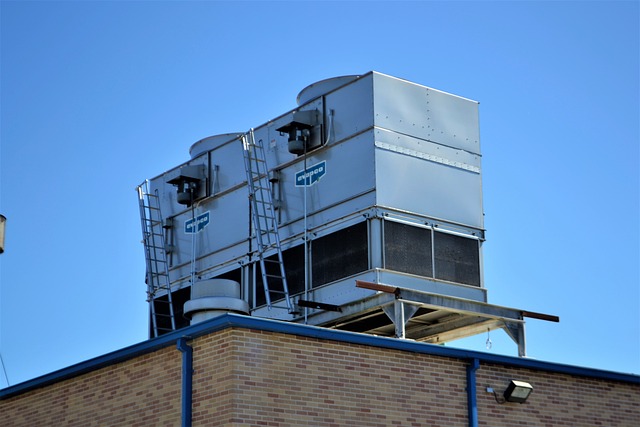
Ensuring your home’s energy efficiency not only contributes to a more comfortable living environment but also significantly reduces your energy bills and carbon footprint. Drawing from the stringent Denver HVAC standards, which prioritize both performance and conservation, there are several key tips and best practices to maximize your home’s energy efficiency. Firstly, proper insulation is paramount. Denver’s climate demands insulation that maintains heat in winter and coolness in summer. Adequate levels of insulation in walls, attics, and crawl spaces are critical, often recommended to be R-22 or higher for attics, R-13 or higher for exterior walls, and R-10 or higher for foundations and crawl spaces as per Denver HVAC guidelines.
In addition to insulation, the choice of windows can greatly impact your home’s energy efficiency. Denver HVAC standards recommend double or triple-pane windows with low emissivity (low-E) coatings to minimize heat transfer. Additionally, sealing windows and doors with weather stripping and caulking can prevent conditioned air from escaping and external air from entering. Another crucial aspect is the maintenance and upgrade of your HVAC system. Regular servicing ensures optimal performance, while upgrading to energy-efficient models, such as those that meet the ENERGY STAR certification, can drastically reduce energy consumption. These measures align with Denver HVAC standards and represent a comprehensive approach to enhancing your home’s energy efficiency. By implementing these practices, homeowners in Denver can significantly improve their homes’ performance, leading to a more comfortable living space and a lower environmental impact.
In conclusion, Denver homeowners play a pivotal role in the pursuit of energy efficiency, a commitment that not only benefits the environment but also offers substantial financial savings. The HVAC system’s performance is paramount in this endeavor, as it accounts for a significant portion of household energy use. Regular inspections by Denver HVAC professionals are essential to identify and rectify potential inefficiencies, ensuring that your system operates at peak performance. By adhering to the best practices outlined in this article, residents can maximize their home’s energy efficiency, contributing to a greener city while enjoying lower utility bills. Investing in such inspections is not just a step towards sustainability; it’s an investment in Denver’s future and the well-being of its residents.
